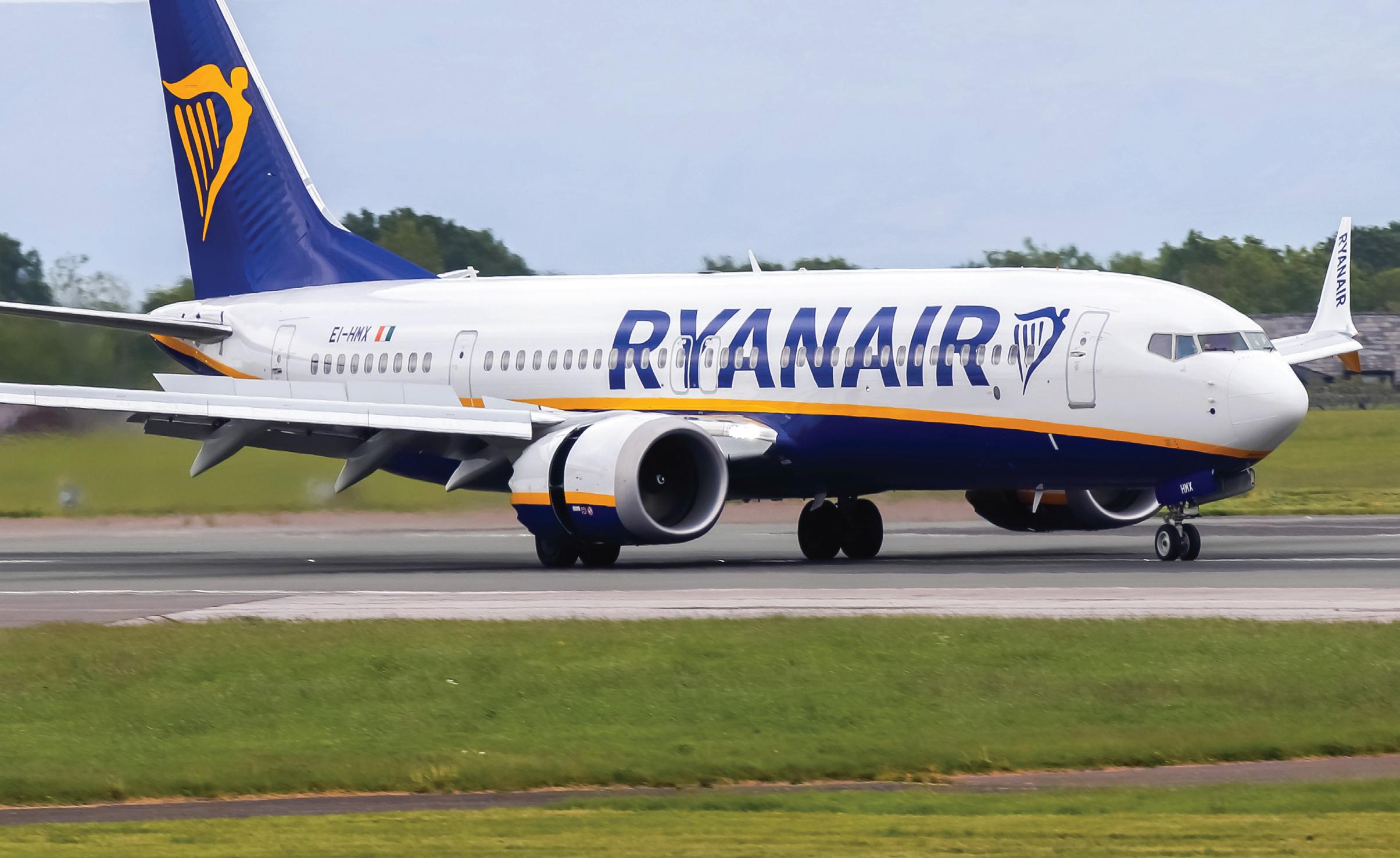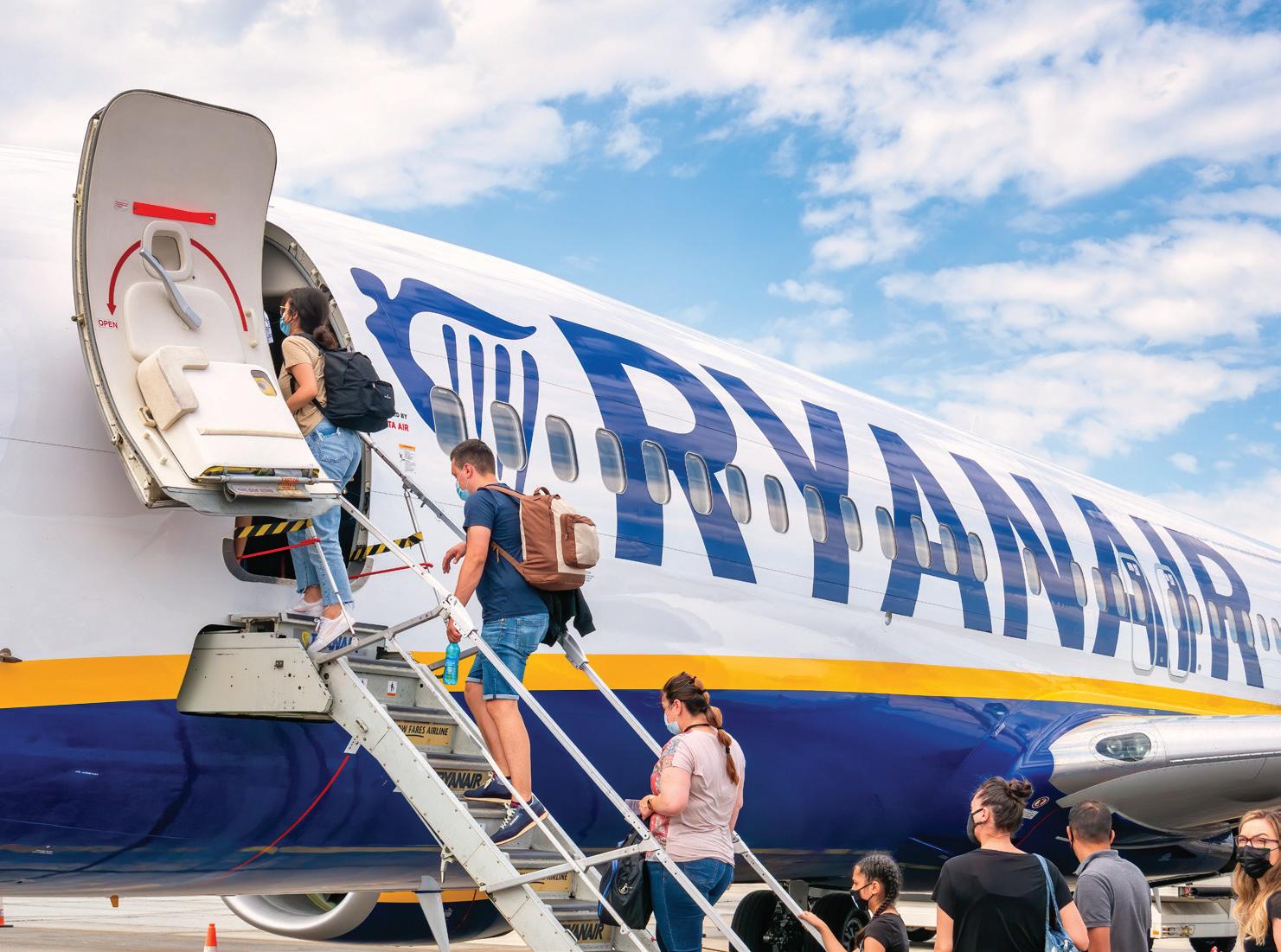
2 minute read
AEROSPACE OUTLOOK
By Royce Lowe Ryanair’s Back
Quite some time ago, when Boeing was going through its troubles with the FAA on the heels of the two 737 Max fatal accidents, Ryanair’s Michael O’Leary, for a long time one of Boeing’s stalwart customers for the 737, was “threatening” to hold off on further purchases from Boeing. But very recently, O’Leary committed to purchasing up to 300 737 Max 10 aircraft from Boeing to be delivered between 2027 and 2033. At the moment, the Max 10 has not been certified for commercial operation but is expected to receive airworthiness certification later this year.
It would be fairly safe to say that the canny Mr. O’Leary, who once “threatened” to charge his passengers for use of his plane’s toilets, and whose aircraft journey all over France without the use of one word of its language from his planes’ staff, engineered a great deal for his up to 300 aircraft. The new order will also apparently resolve a pricing dispute between Boeing and Ryanair, which in 2021 backed out of a reported 250jet contract before it was finalized.
“The Boeing-Ryanair partnership is one of the most productive in commercial aviation history, enabling both companies to succeed and expand affordable travel to hundreds of millions of people,” stated Boeing President and CEO Dave Calhoun. “Nearly a quarter century after our companies signed our first direct airplane purchase, this landmark deal will further strengthen our partnership. We are committed to delivering for Ryanair and helping the airline group achieve its goals.”
There is a new complication with the delivery of the 737 Max. It is a problem with the installation of the fittings on some fuselages. The fuselage structures are manufactured by supplier Spirit AeroSystems, which according to Boeing, reported the problem that resulted from Spirit’s use of a “non-standard manufacturing process.” It was reported that Boeing had targeted June for planned increases in 737 Max production from 31 to 38 aircraft per month. Boeing says it has notified the FAA and the FAA has confirmed Boeing’s assessment that the issue represents no immediate safety concern.
The full severity of the fittings problem is not known, though Boeing said that deliveries of a significant number of 737 Max 7 and 8 could now be delayed. This would likely impact customers such as American Airlines, Ryanair, and Southwest Airlines, who are awaiting 737 Max deliveries. There was a similar problem recently with a production defect on the 787 Dreamliner aircraft, an issue that held up the 787 for some months in 2021 and 2022. It seems the basic problem is two fittings made by Spirit that join the aft fuselage to the vertical tail, which were not attached correctly.

Repairs have been initiated to correct the problem, and Spirit AeroSystems has resumed deliveries of the structures to Boeing. Spirit had been identified by Boeing as the source of the manufacturing defect that halted assembly of its 737 Max during Q1, and thus a new delay in deliveries of those aircraft. Nonetheless, Boeing said the problem would not alter its plan to increase its output of the 737 Max from 31 to 38 per month. Some 500 of the affected 737 Max are in service, and repairs will be carried out during routine maintenance. Spirit is also in trouble, as previously mentioned, on the 787, plus they have problems with the Airbus A220 and A350. These problems will cost Spirit a pile of money and no doubt increase their visibility viz a viz the FAA.
The question has to be posed again; how do such problems get through a quality control system that surely should be, must be, set up for something as critical as a multimillion dollar aircraft?
Author profile:Royce Lowe, Manufacturing Talk Radio, UK and EU International Correspondent, Contributing Writer, Manufacturing Outlook. n

JUNE 2023

